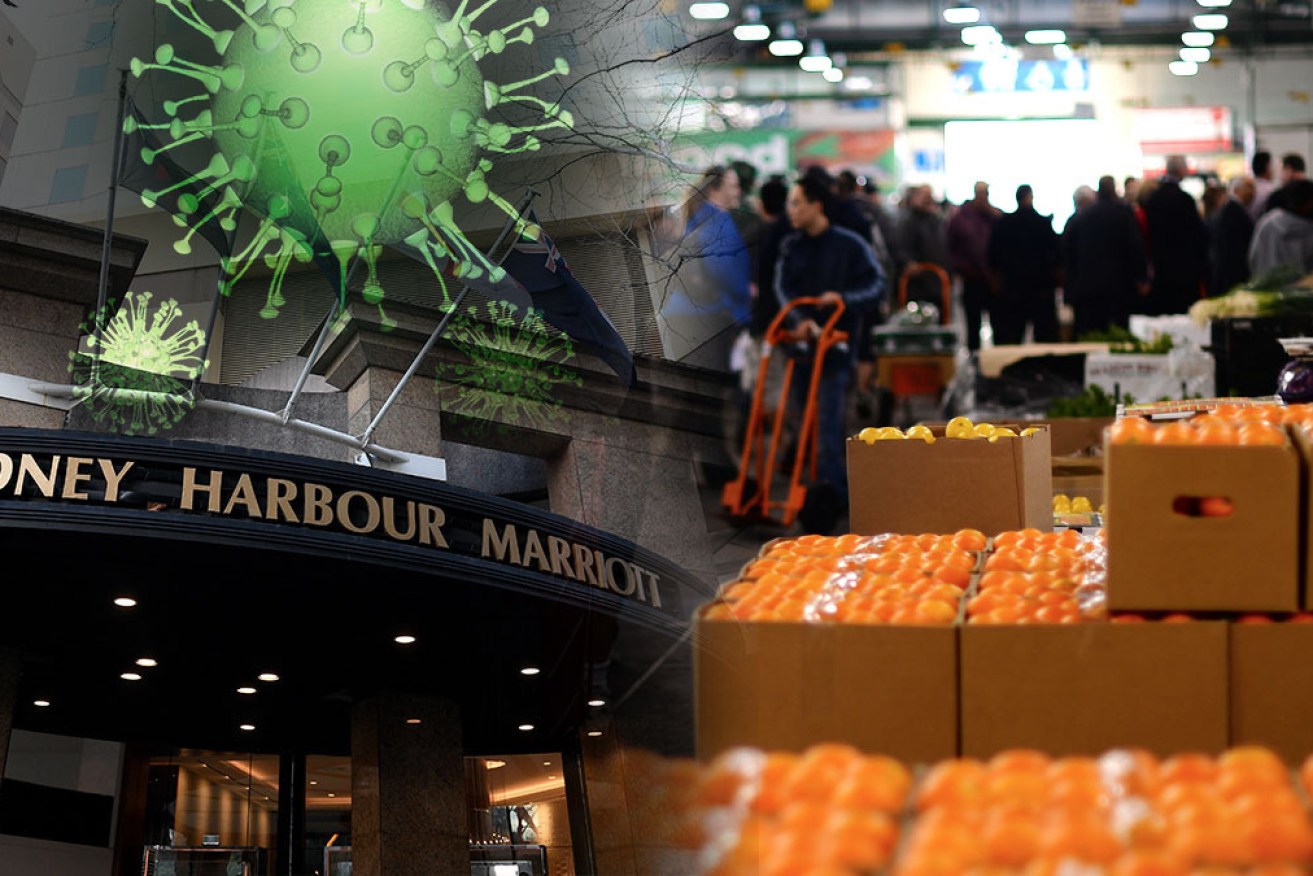How NSW can avoid a second coronavirus wave as hotel guard tests positive

Health authorities are racing to track down the contacts of a Sydney hotel security guard who tested positive for COVID-19. Photo: TND
The NSW government has avoided the same disastrous steps that led to the Victorian second wave after a hotel guard tested positive for the coronavirus – but there are other measures it must take, experts say.
According to NSW Health, the guard worked shifts at the Marriott Hotel in Circular Quay housing returned overseas travellers on August 3, 4, 7 and 8.
He then worked at the Sydney Markets on August 9, and the Parramatta Local Court on August 11 and 12.
The New Daily has contacted all the organisations to ask whether they had rules about employees working across multiple sites, or if they had special guidelines for workers who may come into contact with hotel quarantine or other high-risk situations.
Lessons learned
NSW health authorities appear to have taken on board some key lessons learned from Melbourne’s hotel quarantine bungle.
To start, Sydneysiders were quickly warned about the infected security guard, with crucial contact tracing details quickly disseminated.
This rapid response is a notable step up from Victoria, where health authorities took four weeks to admit the state’s rising coronavirus cases could be linked to outbreaks at quarantine hotels in Melbourne.
The coronavirus outbreak at Rydges Hotel on Swanston Street was first identified by Victoria’s Department of Health and Human Services on May 27, and the Stamford Plaza outbreak identified on June 17, according to AAP.
But it wasn’t until July 2 that an inquiry into the state’s hotel quarantine program was announced.
Two weeks later, on July 13, Victoria’s chief health officer Brett Sutton admitted on ABC Radio it was possible the state’s current cases could be linked to hotel quarantine outbreaks.
By that time, the coronavirus had spread so widely that Stage 3 restrictions were reintroduced for residents in Melbourne and Mitchell Shire.
Insecure work a shared issue
Australian Council of Trade Unions secretary Sally McManus says labour-hire and insecure work had already “spread the virus in Melbourne”, and it was now happening in Sydney.
“People in high-risk workplaces such as hotel quarantine should not have so few hours and no sick leave,” Ms McManus told The New Daily.
“This leads them to working across multiple workplaces when sick out of economic necessity, spreading the virus far and wide.
“Paid pandemic leave and full-time work would prevent this from happening and should be implemented in NSW now.”
Ryan Park, the NSW shadow minister for health, said he feared high-risk workers working across multiple sites could have the type of “disastrous consequences” seen in Victoria.
He called for police and the Australian Defence Force – not private companies – to be the priority for hotel quarantine staffing.
NSW has been using private guards in hotel quarantine since July.
“The concern is when we’ve got guards working in other areas and in quarantine. We’ve seen what happens when it breaks down, like in Victoria,” Mr Park told The New Daily.
“We need assurances from the Premier and the health minister that hotel quarantine is secure. We need to make sure anyone working there is not just doing it as a casual or part-time job.”
The NSW news came on the same day that Victoria’s independent judicial inquiry into hotel quarantine heard that 99 per cent of the state’s current COVID outbreak could be traced back to just two hotels.

The Stamford Plaza quarantine hotel was the centre of a coronavirus cluster in Melbourne. Photo: ABC
Mr Park called the situation in that state an “enormous disaster”.
He said Labor’s “preference” was for police and ADF to be doing the bulk of hotel quarantine work, but said that private guards needed to be paid enough so they didn’t feel compelled to work multiple jobs.
“Anyone in those places, they should be there full time and not doing multiple other jobs. We need our hotel quarantine system to stand up as our last line of defence,” he said.
‘This is exactly how it started in Melbourne’
Dr Alex Polyakov, a senior lecturer in obstetrics and gynaecology at the University of Melbourne, said tracing all the contacts of the infected security guard would be a difficult but “absolutely crucial” task.
“That security guard could’ve been in contact with 10 security guards at another place, who then go to work the next day,” he said.
“That’s the nightmare scenario – that it gets out of hand.
“This is exactly how it started in Melbourne.”
Dr Polyakov, who holds a masters in epidemiology and biostatistics, said everyone who has been in contact with the infected security guard would need to self-isolate immediately, even if their COVID-19 tests were negative.
That’s because it can take a few days before infected people deliver a positive test after contracting the virus.
He added he was not surprised to hear the security guard worked several jobs at multiple locations.
“It’s a similar situation to aged care, where the workforce is made up of a lot of casual workers in different nursing homes,” Dr Polyakov said.
“One of the challenges is some of the work this security guard does may be on a cash basis, so they may not disclose that to the contact tracers.”








